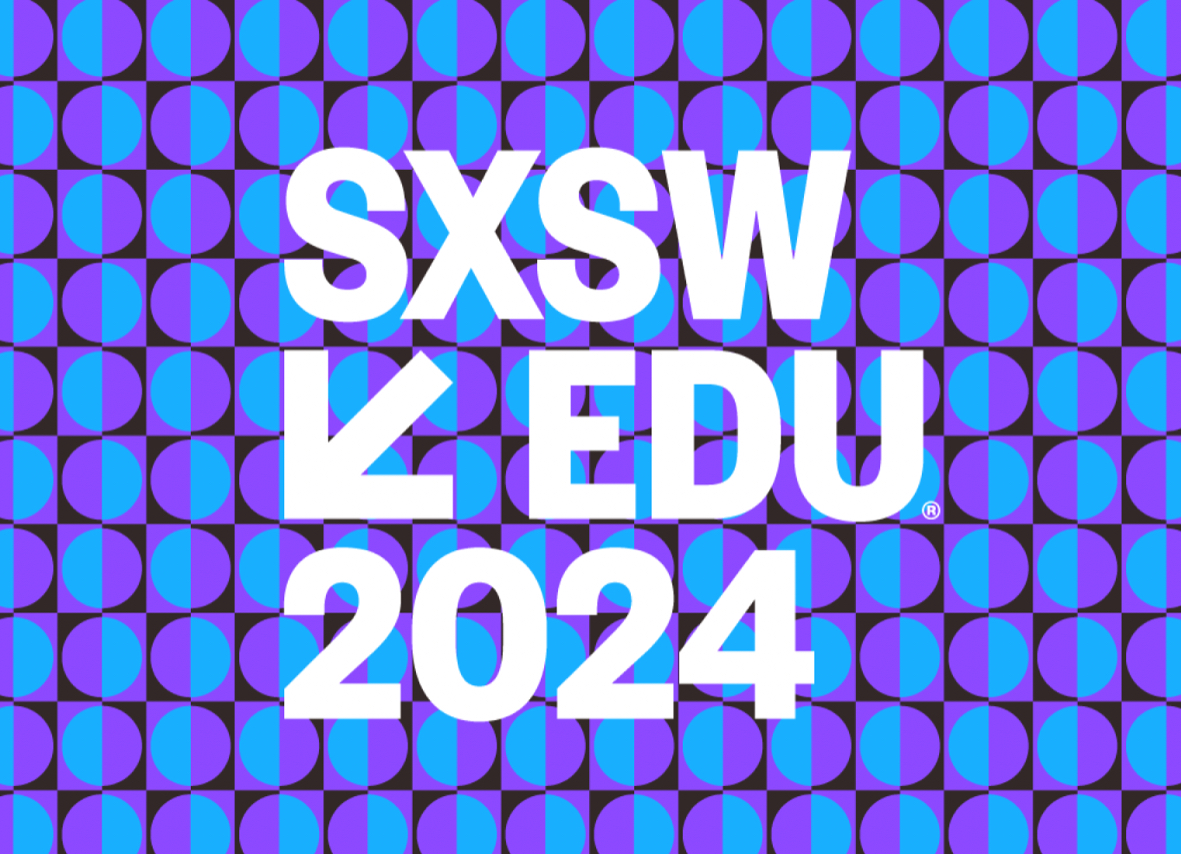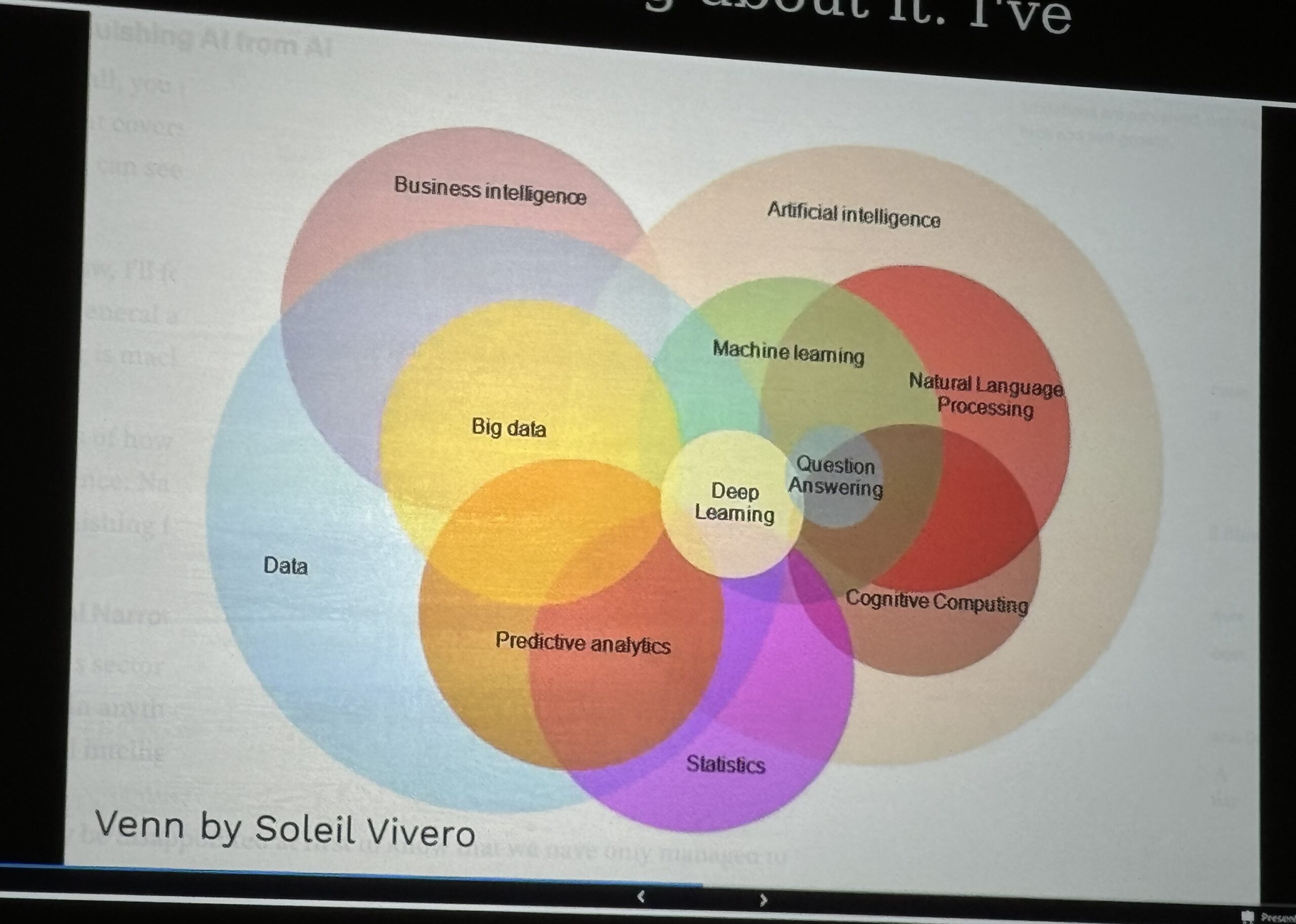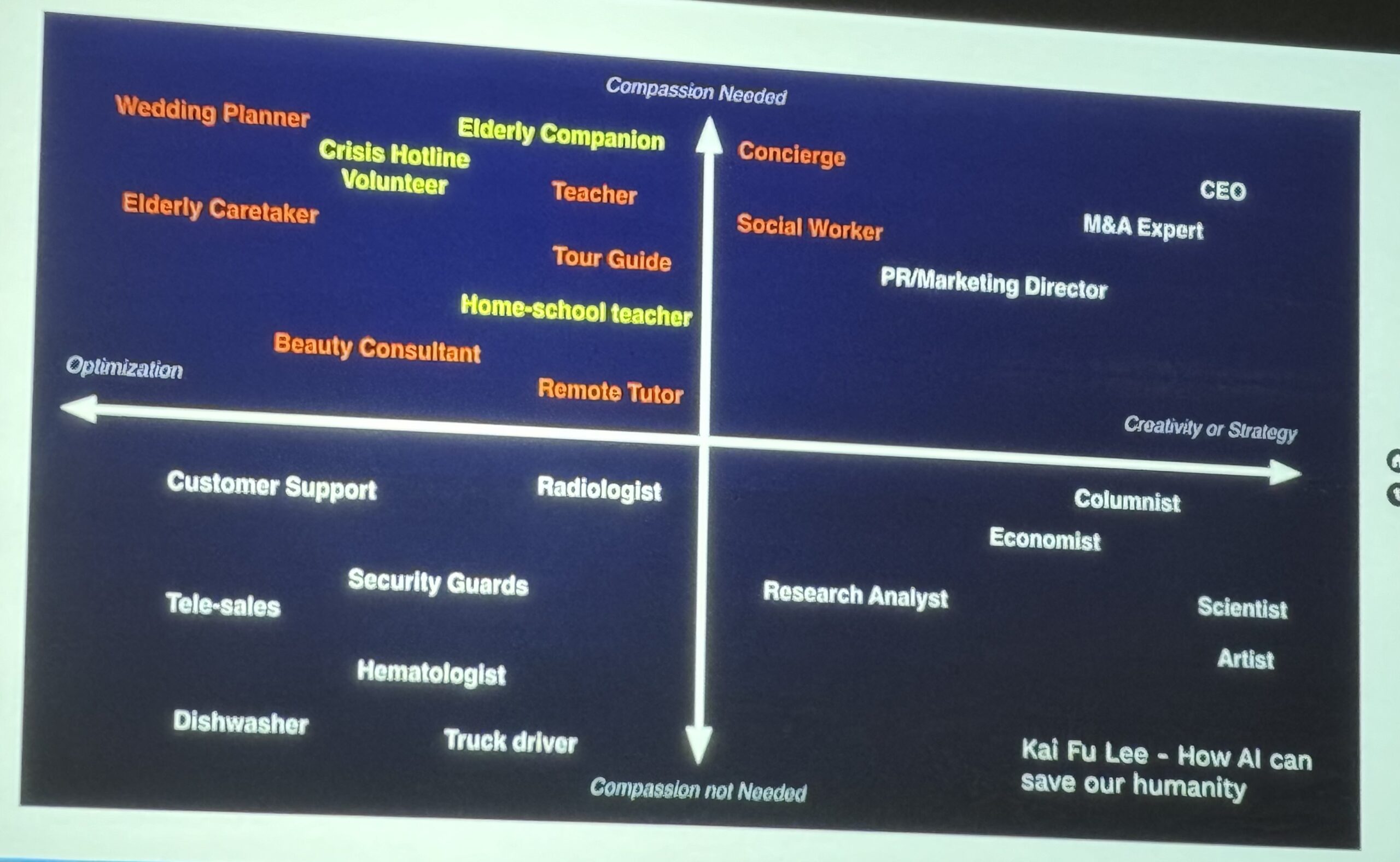 The Learning Collective attended this year’s SXSW EDU conference. We focused much of our time there on learning about the latest in AI. Though we left the conference with more questions than answers, we definitely feel more knowledgeable about AI and where it may lead us. Here are some of our takeaways from the conference …
The Learning Collective attended this year’s SXSW EDU conference. We focused much of our time there on learning about the latest in AI. Though we left the conference with more questions than answers, we definitely feel more knowledgeable about AI and where it may lead us. Here are some of our takeaways from the conference …
Maybe the first place for educators to start is the AI Guidance for Schools Toolkit, created by a panel of mostly non-profit-affiliated experts. Last updated 2/10/24.
Some questions we hadn’t previously thought deeply about:
- What will good pedagogy look like when all students have access to real-time, highly adaptive, highly individualized learning resources?
- Will all students now need certain baseline literacies in AI — like in the past all humans needed basic literacies in growing their own food?
- It took 20 years, and a pandemic, for most schools to fully adopt online learning. How long will it take schools to fully adopt AI?
- For many people, AI may change their jobs somewhat but not completely. How will AI shift, but not fully alter, your job?
- Is AI like ATMs that started 40 years ago? You could conduct banking without interacting with a human but bank tellers still exist today.
- Will AI in the future enable students to bypass the college application process – because all student skills and accomplishments will already be known by AI/databases? Will students just need to share their QR code to apply for college?
- AI can be used for collaborative projects between students and teachers. Can AI be used to improve the quantity and quality of student-led discussions?

Additional Food for Thought:
- AI’s most immediate use in schools (some are already doing it) may be regarding assessment. Future assessment records may be focused on things like how critical thinking ability improved from middle to high school rather than current tests like SAT that measure ability at one point in time. AI can free up educators to be facilitators because AI can do the creating, and scoring, of assessments. AI could potentially, through student assessments, provide insights into students’ abilities & skills that students maybe didn’t know they had.
- AI can also improve: academic skill-building, the breaking down of silos of data and home-school connections (such as answering parent questions re what is happening at schools).
- Compassion and empathy may be qualities that AI may never be able to fully master thus are teacher skills that may always be in demand
Learning and job skills that may be in the highest demand in the future AI-ubiquitous world
- Likeability
- Curiosity & Creativity
- Emotional Intelligence & Empathy
- Critical Thinking & Problem Solving
- Resilience & Adaptability
- Basic Digital Literacy & Technological Proficiency
- Collaboration & Teamwork
- There are about 200 million ChatGPT users but schools are a very small percentage of those early adopters – there is a significant lag especially in the K-12 space.
- There are some polls that say 50% of teens use ChatGPT to do their homework. The nature and content of homework will likely need to change to be learning activities that assume the use of, and require, AI.
- Some of the largest tech companies are now saying that within 3 years they won’t hire any software engineers that don’t have expertise in AI.
- One session referred to Meno’s Paradox: If you don’t know about a topic, you don’t know what questions to ask. Thus there are limits to what large language models like ChatGPT can do for the user.
- 3 most popular searches on https://khanmigo.ai are: write a lesson plan, chat with ChatGPT4, and tutor me STEM
- AI could conduct the testing required in skills-based hiring
- Accenture will pour $3 billion into generative AI over the next three years and will double its artificial intelligence-focused staff to 80,000 through training, hiring and acquisitions.
- Workers may not be replaced by AI. You as a worker may be replaced by someone who uses AI better than you.
- 95% of public schools in NYC may not have access to ChatGPT – though many NYC private schools are adopting ChatGPT.
- AI may be particularly good at writing rubrics.
- Data is a flow, not a single event.
- Sit with your kid while your kid is using AI.
- If you use a small data set that is high quality and diverse, the output from that data set could be better (and more equitable) than output from a large, lower quality data set that may be from not-fully-representative sources.

In this visual, AI may render careers (written in white) obsolete
Some tools that are gaining in popularity and use:
- Perplexity is combo of Google search and ChatGPT – uses access to current info on the Internet (not ending at January 2022 that is data set of free ChatGPT)
- MagicSchool
- Khanmigo
- Real time video interventions and teacher created interventions
- Readalong corrects and supports independent practice
Other Interesting Tools:
- SXSW EDU exhibitors we found interesting: Edtek, Esai, Rumi, Amp-edmusic, Instructify, F1inschools, Automage
- Loper may help find the right higher educational program
